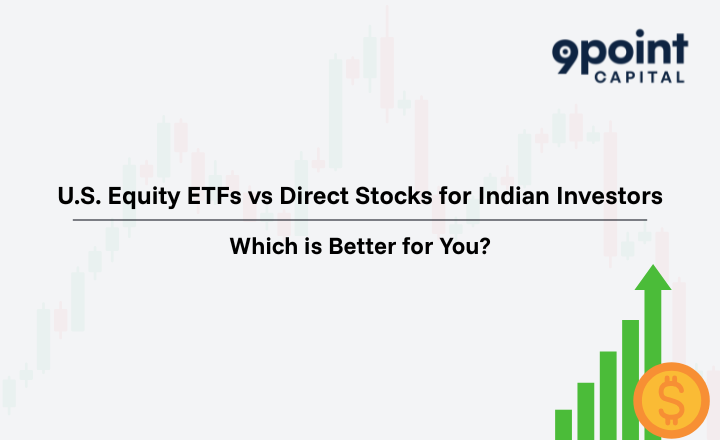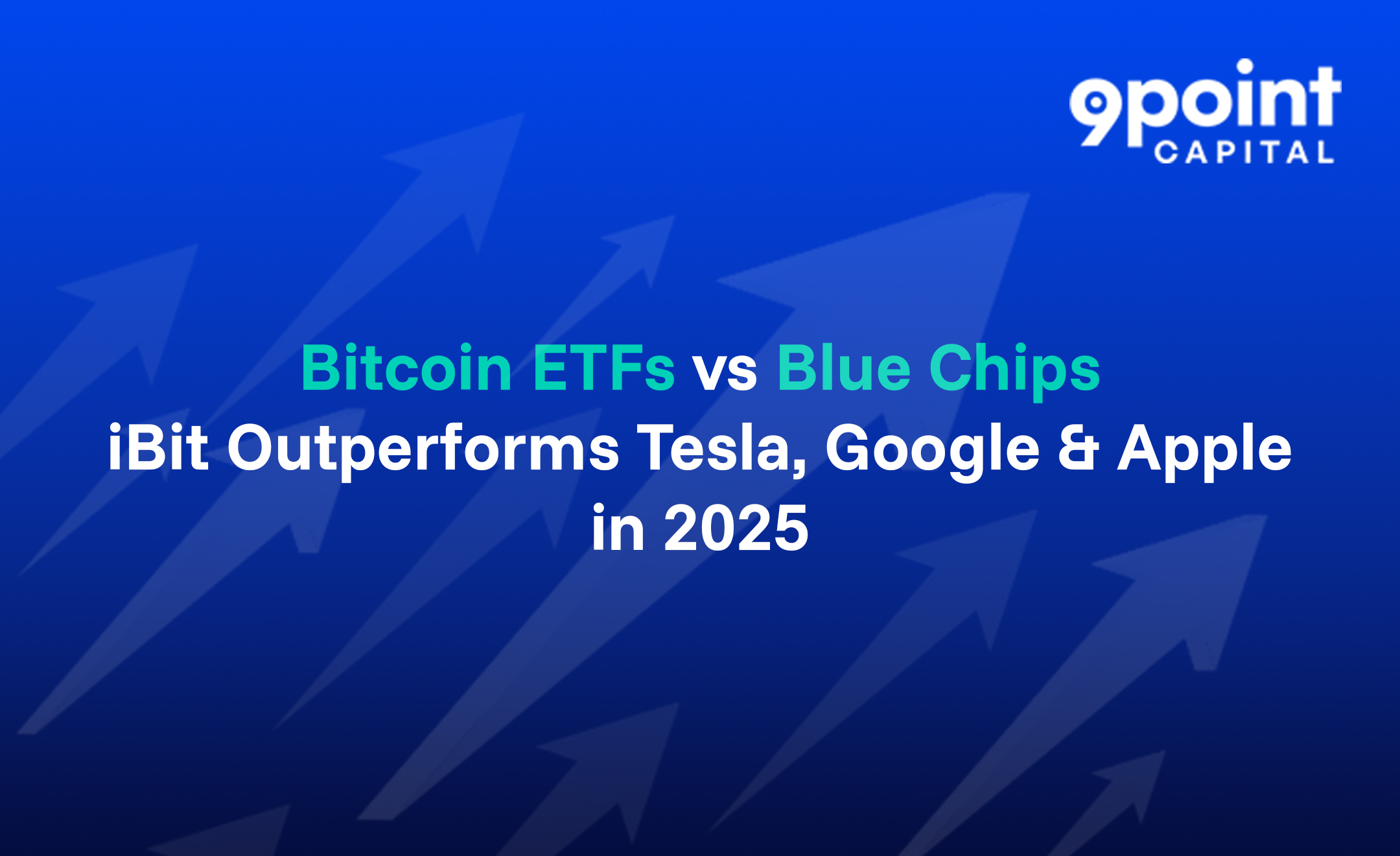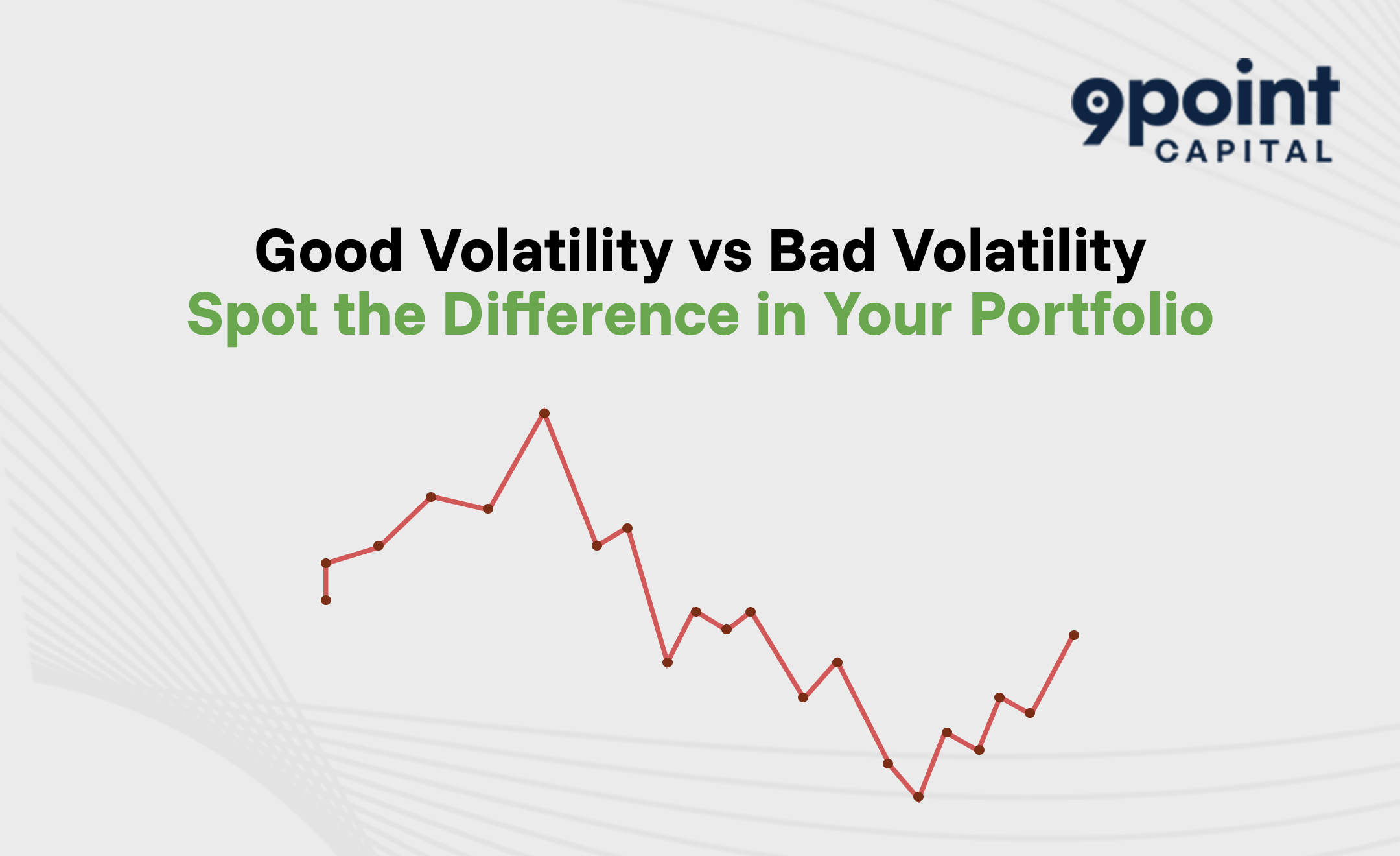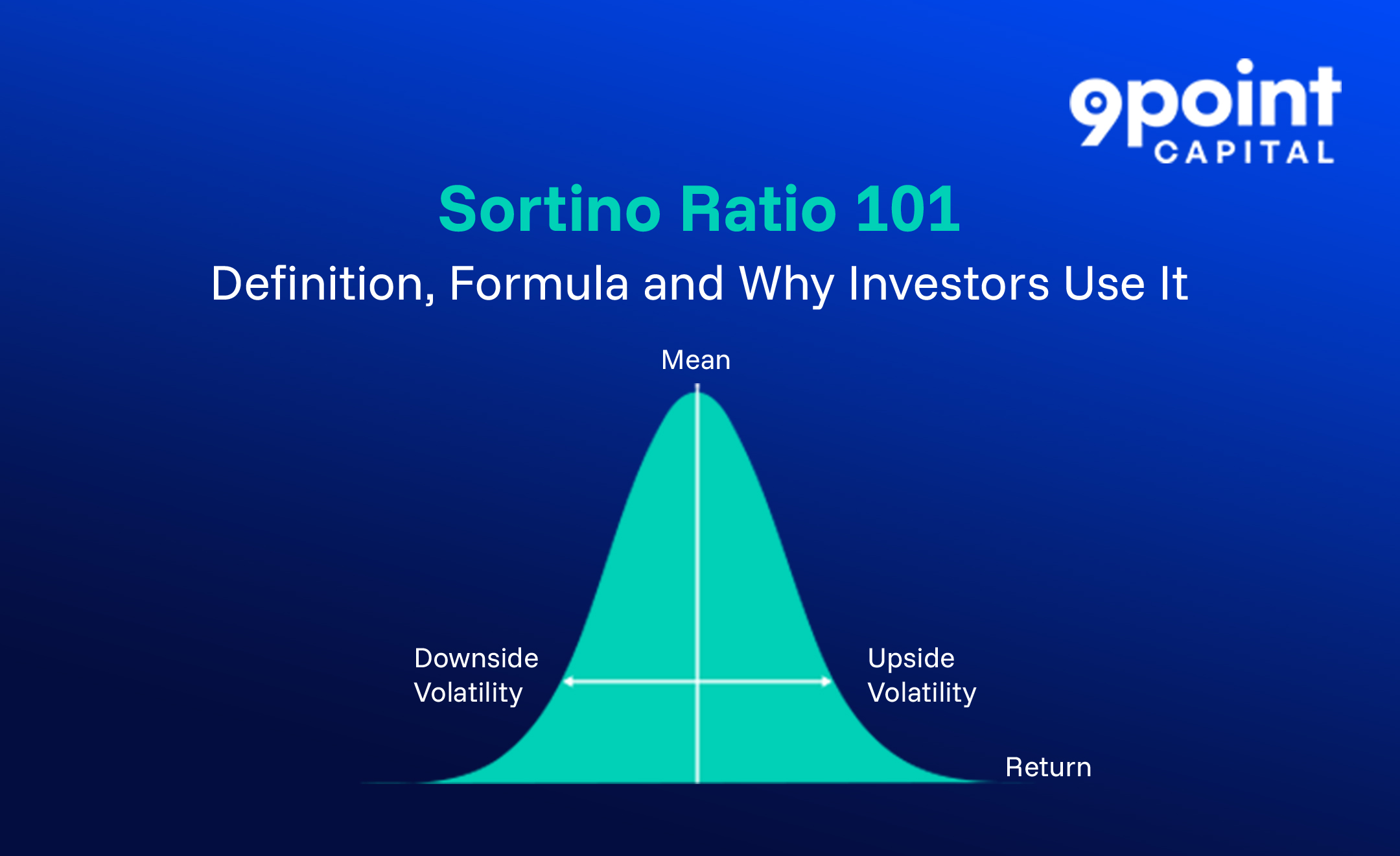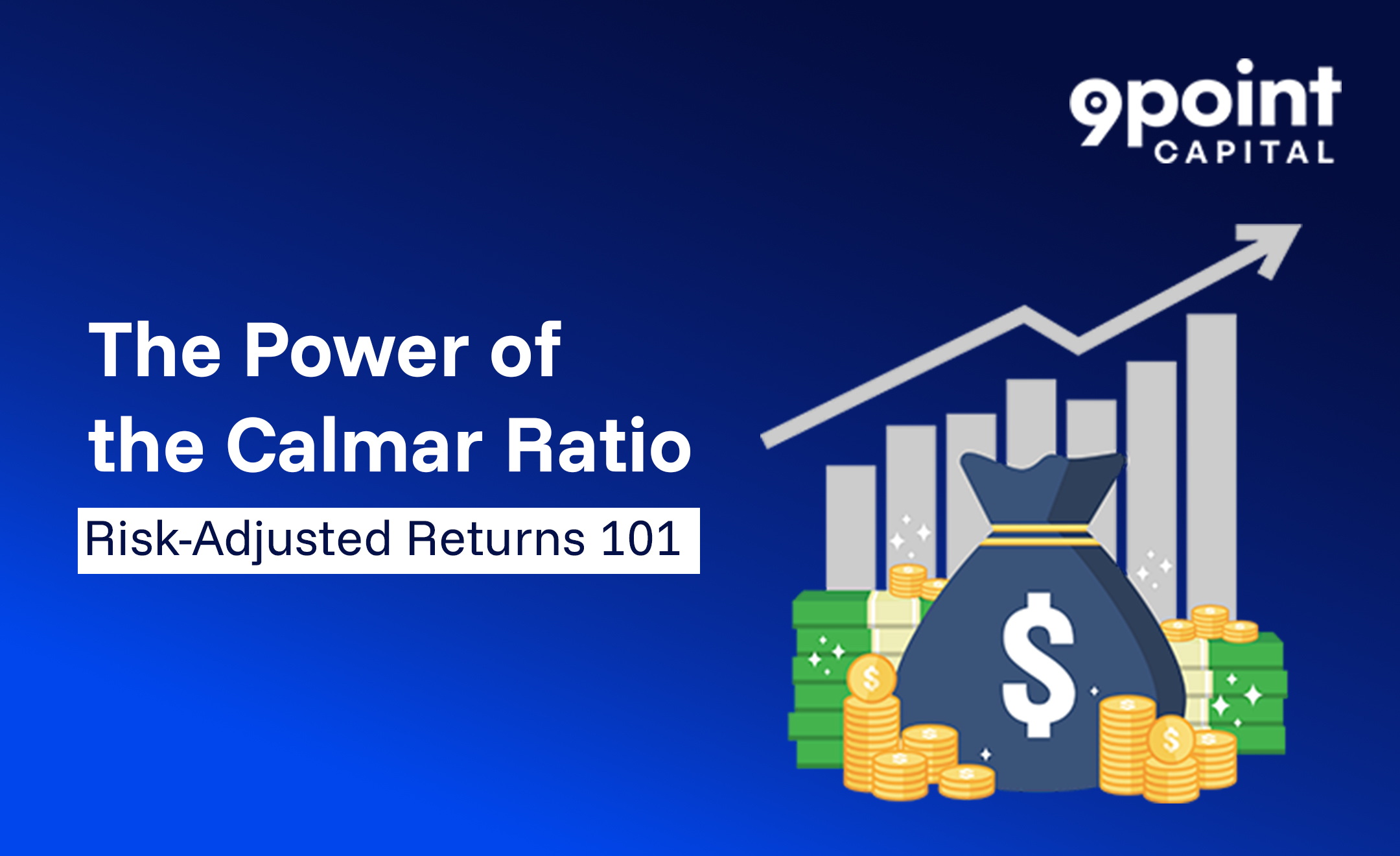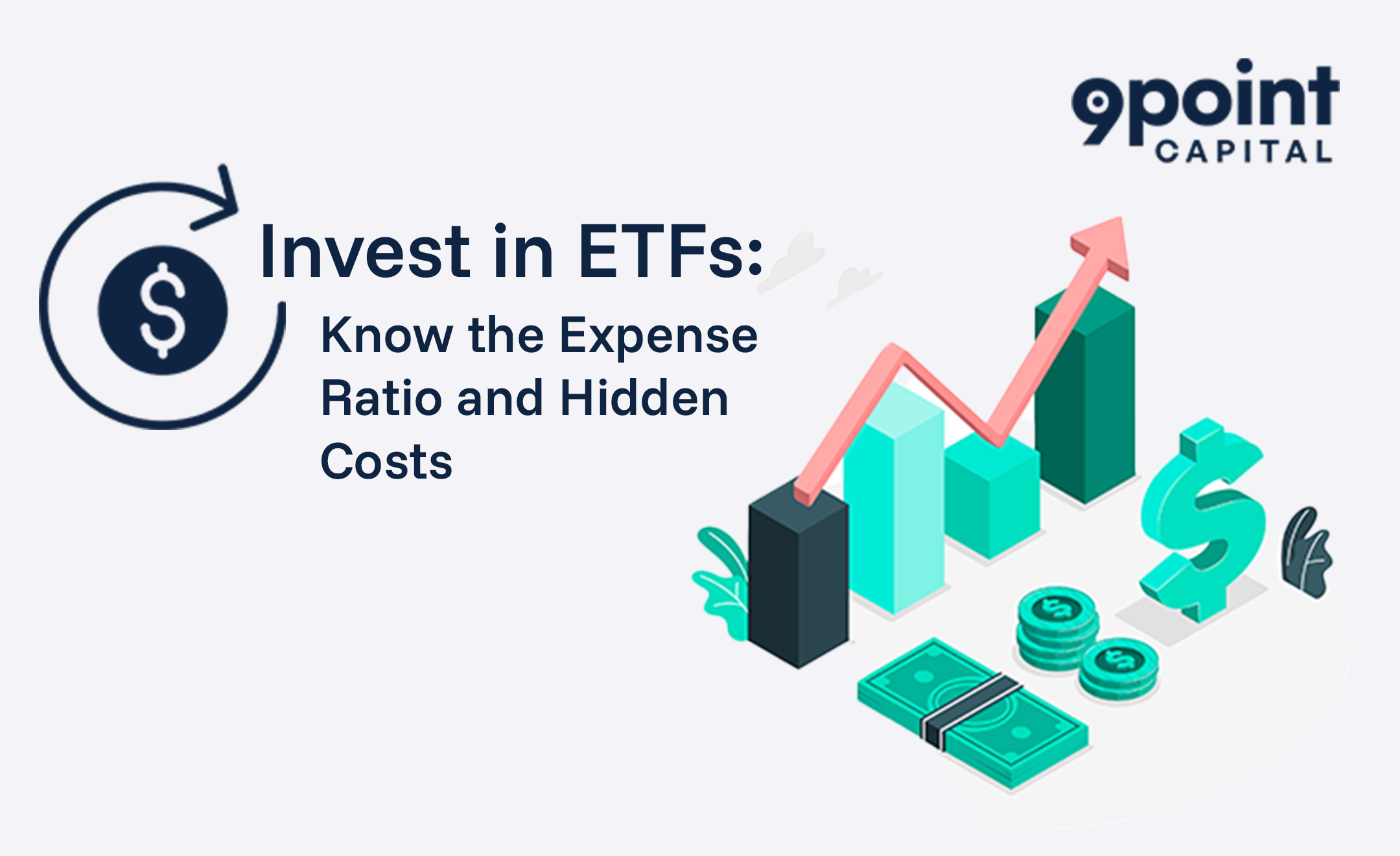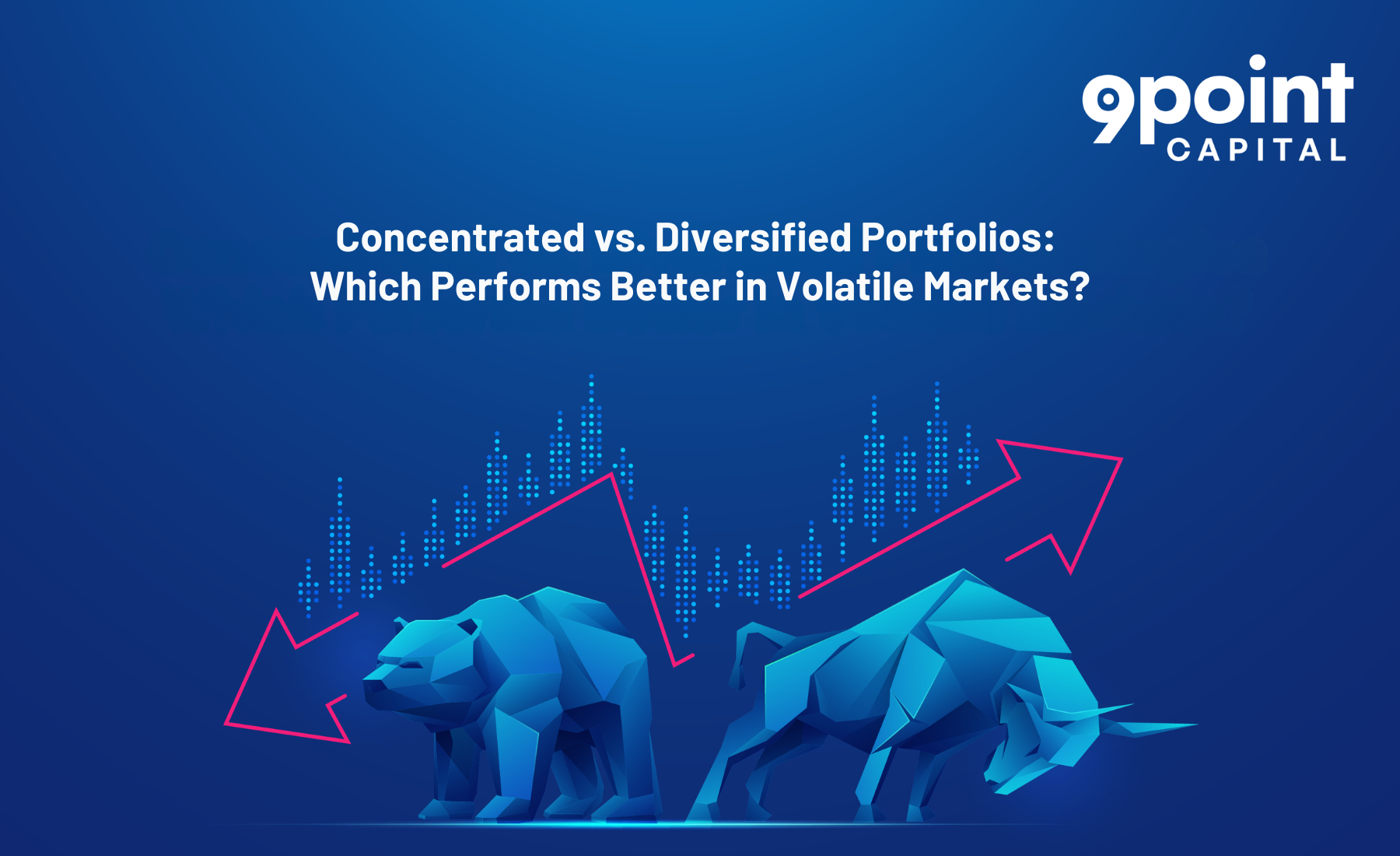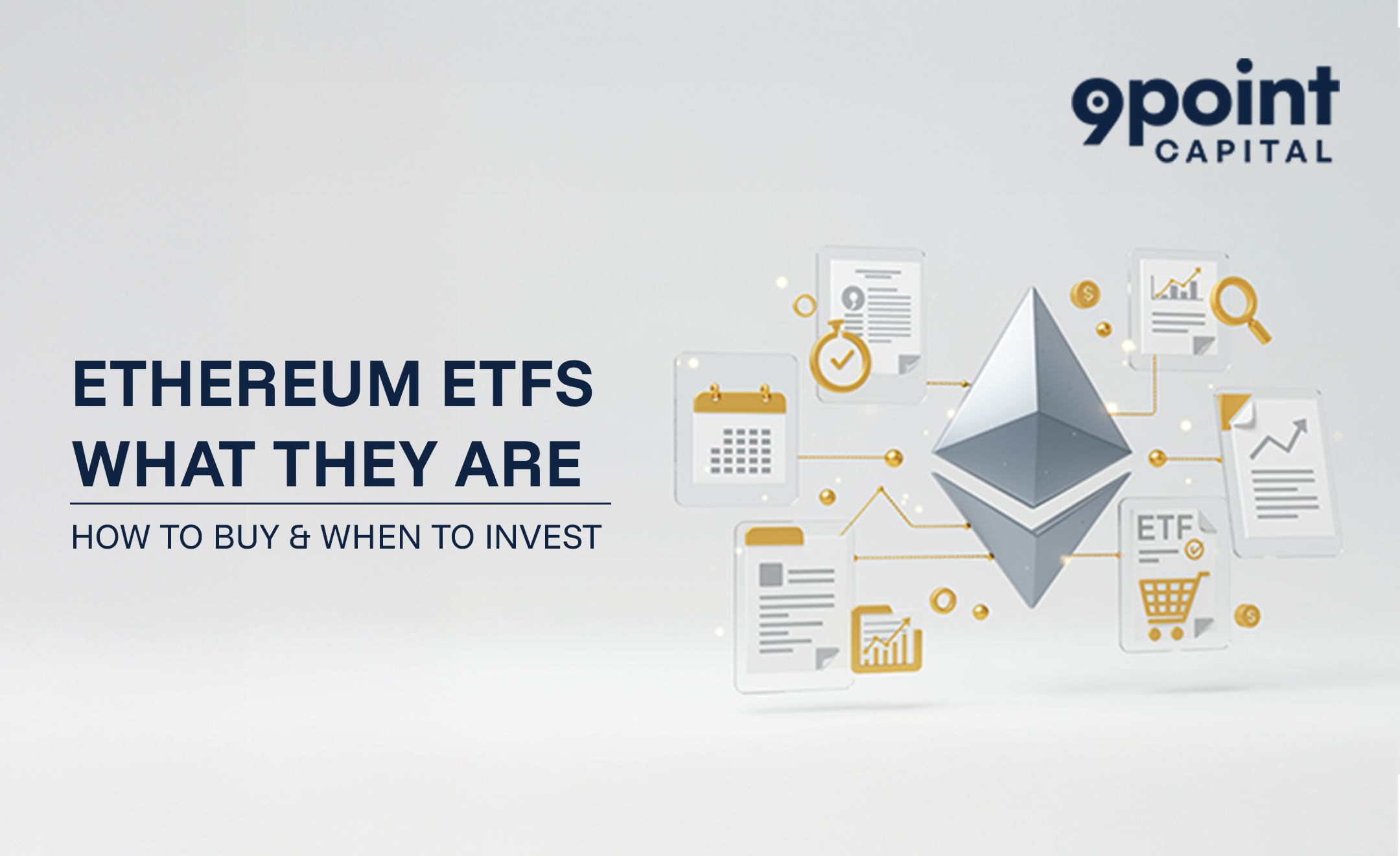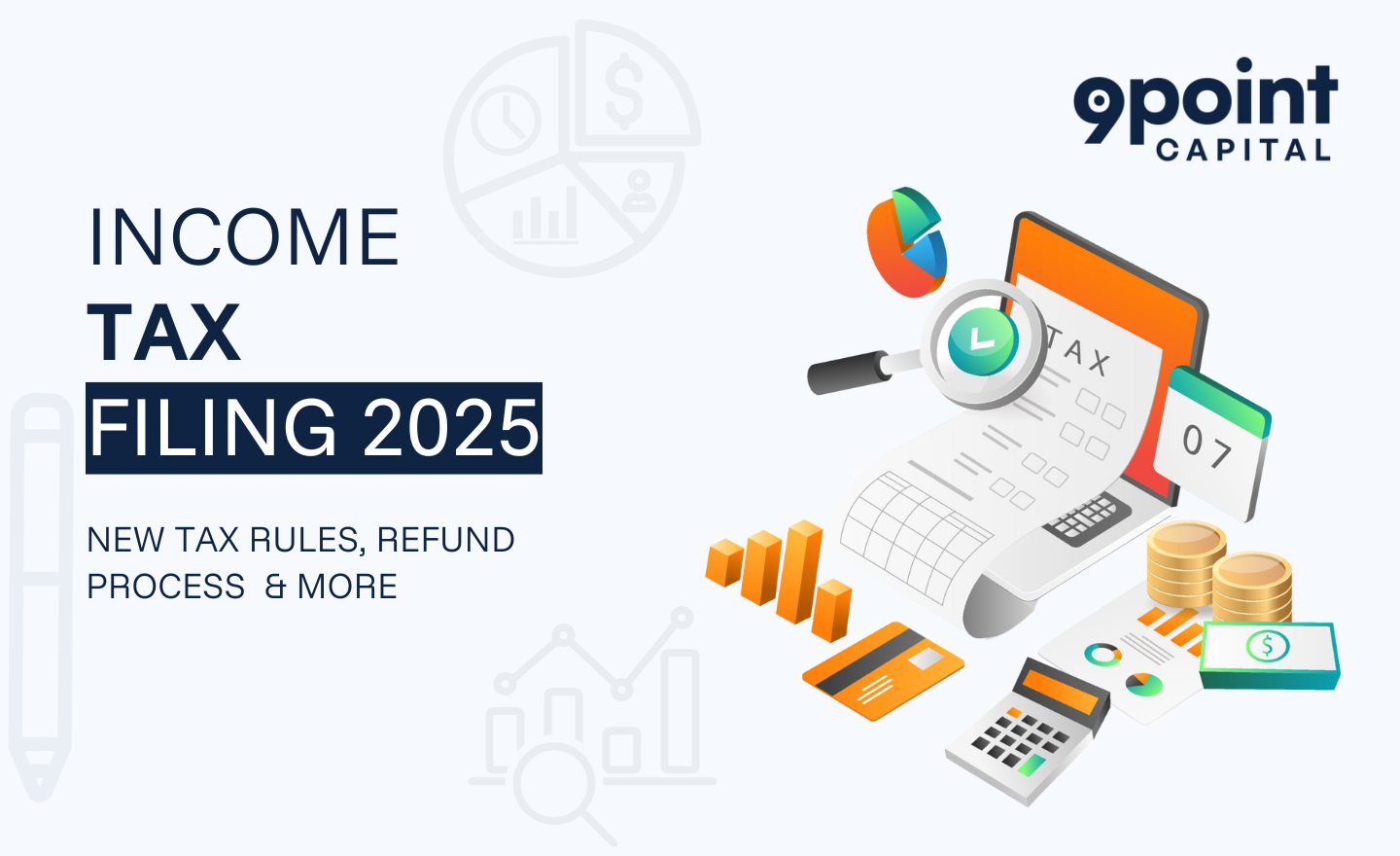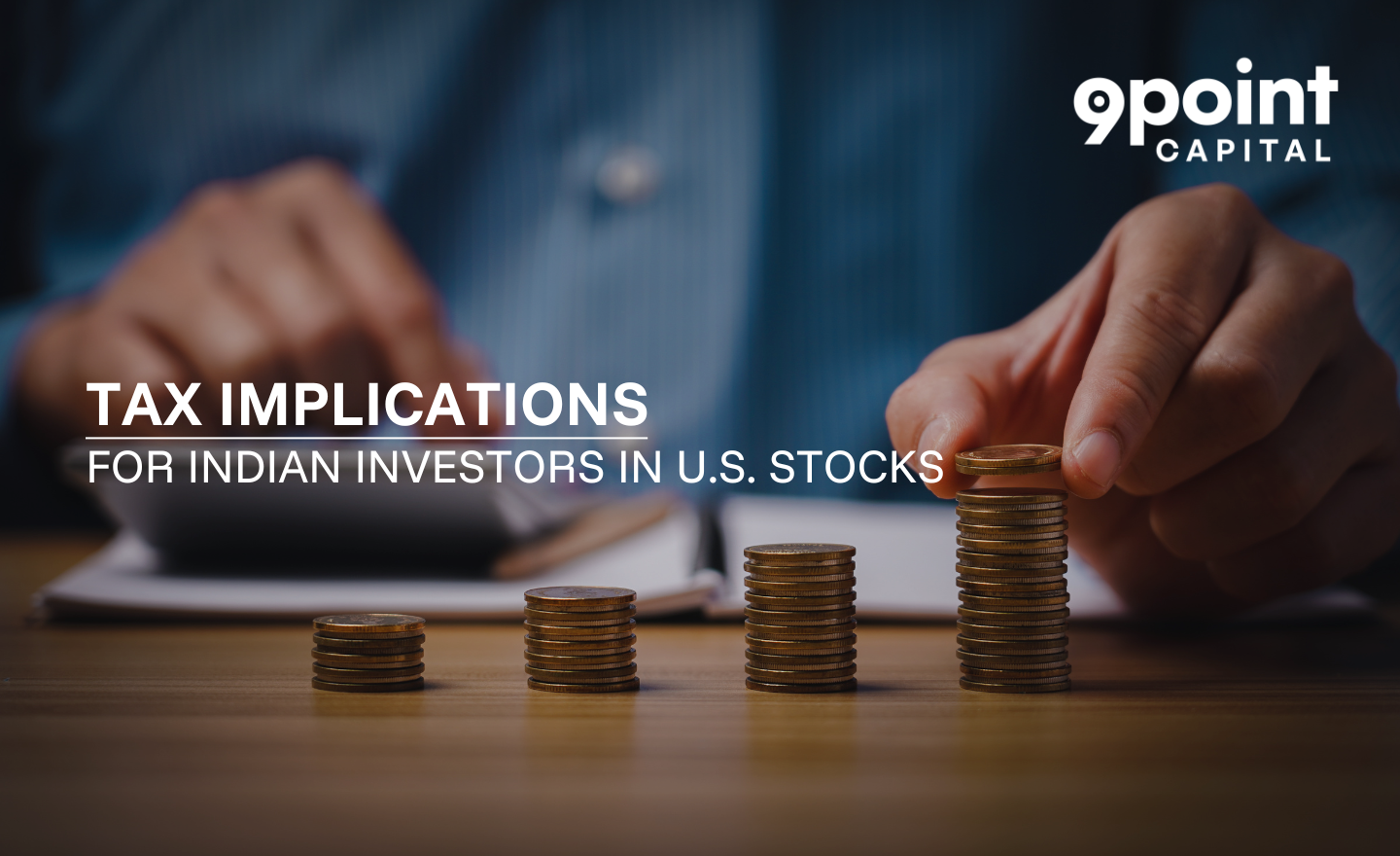For Indian investors, gaining exposure to US equities is about diversifying beyond domestic boundaries, protecting wealth against currency depreciation and tapping into global growth trends. But the real decision lies in choosing the right path: equity ETFs vs direct stocks for Indian investors.
What Are US Equity ETFs?
US Equity Exchange-Traded Funds (ETFs) are baskets of stocks that track an index, sector, or theme in the US market. They trade like shares on an exchange, offering built-in diversification.
Examples include:
- S&P 500 ETFs (VOO, SPY, IVV) – Track the 500 largest US companies.
- Nasdaq-100 ETFs (QQQ, QQQM) – Focused on technology and innovation leaders.
- Thematic ETFs – Covering clean energy, AI, or semiconductors.
Key benefit: One purchase gives you diversified exposure to dozens or hundreds of companies.
What Are Direct US Stocks?
Buying direct US stocks means owning shares of individual companies listed on US exchanges. You choose the company, you take the full risk and you enjoy the full reward.
Examples: Apple (AAPL), Tesla (TSLA), Amazon (AMZN), Nvidia (NVDA).
Key benefit: Your returns depend entirely on the performance of the company you pick.
Equity ETFs vs Direct Stocks for Indian Investors: Comparison
| Factor | US Equity ETFs | Direct US Stocks |
| Diversification | One ETF can hold 50–500+ stocks; lowers company-specific risk | Exposure limited to the chosen company |
| Risk Level | Generally lower; mirrors index performance | Higher; tied to company news and results |
| Research Required | Minimal; choose an index/theme and track overall market | High; requires continuous monitoring of fundamentals |
| Volatility | Smoother returns; less impacted by single-stock swings | Potentially large price fluctuations |
| Cost | Low annual expense ratios (0.03%-0.5%); fewer trades | Brokerage per stock; more trades increase costs |
| Tax in India | Dividend tax: 25% US withholding; capital gains taxed in India | Same tax rules apply |
| Compliance under LRS | Straightforward; fewer transactions make reporting easy | Same rules but more record-keeping needed |
When ETFs Work Best for Indian Investors
ETFs can be the smarter choice if you:
- Want instant diversification with one trade.
- Prefer a low-maintenance investment.
- Are new to US markets and want to start safer.
- Seek lower volatility compared to individual stocks.
Example: An S&P 500 ETF spreads your investment across companies like Apple, Microsoft, Johnson & Johnson and JPMorgan Chase – cushioning your portfolio if one company underperforms.
When Direct Stocks Can Be the Right Choice
Direct stocks can outperform ETFs if you:
- Enjoy analysing companies and identifying growth potential.
- Want concentrated exposure to high-growth names.
- Can tolerate higher risk for the chance of higher returns.
- Have time to track earnings, news and industry trends.
Example: In early 2023, Nvidia (NVDA) delivered over 200% returns within 18 months – far beyond what most ETFs offered in that period.
A Balanced Approach: Core-and-Satellite Strategy
Many experienced Indian investors blend both options:
- Core Portfolio (70-80%) – Equity ETFs for stability and market-wide exposure.
- Satellite Portfolio (20-30%) – Direct US stocks for targeted growth bets.
This mix gives you the steady compounding of ETFs with the upside potential of well-chosen stocks.
Tax and Compliance for Indian Investors
Whether you pick ETFs or direct stocks, you must follow the RBI’s Liberalised Remittance Scheme (LRS):
- Annual Limit: USD 250,000 per financial year.
- Dividend Tax: 25% US withholding; claim credit in your Indian ITR.
- Capital Gains Tax in India:
– Long-term (>24 months): 12.5% (without indexation benefit).
– Short-term (≤24 months): Taxed as per your income slab. - Reporting: All foreign holdings must be disclosed in your ITR.
- Costs to Watch: Currency conversion fees, wire transfer charges and platform commissions.
Final Verdict
For most Indian investors, ETFs offer a more diversified, lower-risk and easier-to-manage entry into US markets. Direct stocks, while riskier, can be rewarding for those with research skills and the patience to monitor investments closely.
If you’re starting your US investment journey, begin with ETFs. As you gain confidence, add select direct stocks to create a globally diversified, growth-focused portfolio.
At 9Point Capital, we provide Indian investors with seamless, LRS-compliant access to both US Equity ETFs and global digital assets – complete with tax support, SIPC-insured custody and tailored investment strategies.
Quick FAQ – Equity ETFs vs Direct Stocks for Indian Investors
Q1. Which is better for beginners – equity ETFs or direct stocks?
Equity ETFs are generally safer for beginners because they provide instant diversification, lower volatility and require less time for research compared to direct stocks.
Q2. Can Indian investors hold both equity ETFs and direct US stocks?
Yes. Many investors use a mix – ETFs for stable, broad exposure and direct stocks for targeted growth opportunities.
Q3. How are equity ETFs and direct stocks taxed in India?
Both follow the same rules: 25% US withholding tax on dividends (claimable under DTAA) and Indian capital gains tax – 12.5% for long-term gains without indexation and slab rates for short-term gains.
Q4. What is the best way to invest in US equity ETFs from India?
Use RBI’s Liberalised Remittance Scheme (LRS) through an international brokerage or an advisory platform offering LRS-compliant US market access.
Q5. Which has higher returns – US equity ETFs or direct stocks?
Direct stocks can offer higher returns if you pick winners, but they also carry higher risk. ETFs provide steadier performance by tracking a broad market index.
